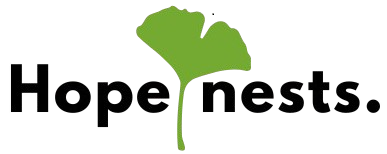“Navigating the path to parenthood in Nigeria is a journey filled with hope, but also questions—especially when it comes to the financial aspects of fertility treatments. With many couples facing the challenge of accessing affordable care, understanding what treatments are covered by insurance and what you might need to pay out-of-pocket is crucial. This guide sheds light on the current landscape of fertility treatment coverage in Nigeria, helping you make informed decisions on your path to parenthood.”
Introduction
Embarking on the journey to parenthood through fertility treatments is a significant step. In Nigeria, the landscape of fertility treatment coverage is evolving, with some insurance providers beginning to include assisted reproductive technologies (ART) in their plans. However, coverage varies widely, and many couples still face substantial out-of-pocket expenses.
Fertility Treatments Available in Nigeria
1. In Vitro Fertilization (IVF)
IVF is a widely sought-after fertility treatment in Nigeria. Clinics such as Omega Golden Fertility Clinic offer IVF with options like donor eggs and ICSI (Intracytoplasmic Sperm Injection). The cost for IVF with one’s own eggs ranges from ₦3.2 million to ₦3.5 million, while IVF with donor eggs can cost up to ₦4.5 million
2. Intrauterine Insemination (IUI)
IUI is a less invasive and more affordable option compared to IVF. For instance, Omega Golden Fertility Clinic lists IUI at ₦850,000
3. Egg Donation and Surrogacy
Some clinics, like Origene Fertility, offer egg donation and surrogacy services. These advanced treatments are typically more expensive and may not be widely covered by insurance
Insurance Coverage for Fertility Treatments
Private Health Insurance
A few Health Management Organizations (HMOs) in Nigeria have started to include fertility treatments in their plans. For example, Hygeia HMO offers the HY-MAMA Bundle, which provides up to four IVF sessions, including two full cycles and two embryo transfers, for ₦3.9 million. This package also covers donor eggs at no extra cost and offers a 45% refund if all sessions are unsuccessful
National Health Insurance Scheme (NHIS)
Currently, the National Health Insurance Scheme does not cover fertility treatments. Experts have advocated for the inclusion of fertility care in the NHIS to make these services more accessible and affordable for Nigerians
Financial Assistance and Financing Options
Given the high costs associated with fertility treatments, several financing options are available:
- Instalment Payments: Some clinics offer payment plans to ease the financial burden.
- Bank Loans: Partnerships between banks and fertility clinics, such as Access Bank’s Maternal Health Service Support (MHSS), provide loans to couples seeking fertility treatments
- Nonprofit Grants: While not widespread in Nigeria, some international organizations offer grants for fertility treatments
Conclusion
Accessing fertility treatments in Nigeria involves navigating a complex landscape of costs and coverage options. While some private insurance plans are beginning to include fertility treatments, many couples still face significant financial challenges. It’s essential to research available options, inquire about insurance coverage, and explore financing solutions to make informed decisions on your fertility journey.



